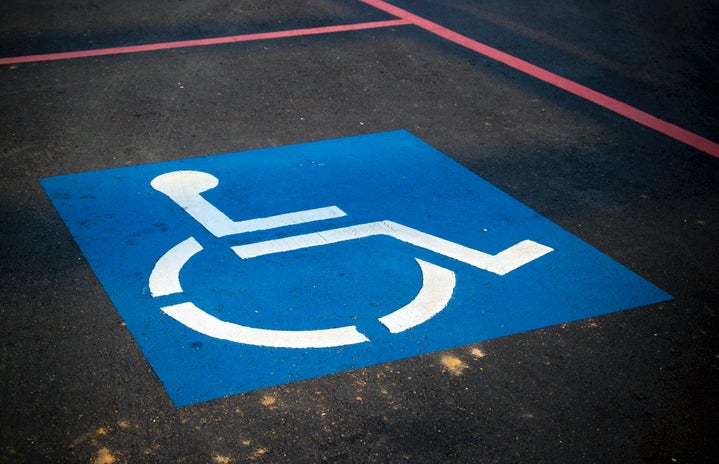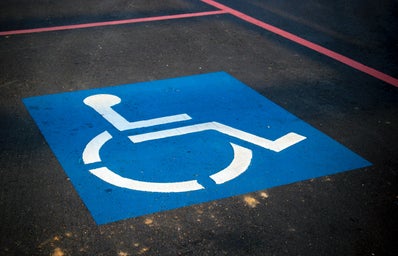-
Just like how racism, sexism, and homophobia are unacceptable, so is ableism. Ableism is when you discriminate against disabled people. Disabled people face many unfortunate acts of ableism every day of their lives. Here, I give to you a few common ableist phrases that you might have been unaware of. Read the list, educate yourself, and help make the world a better place for everyone, including disabled people.
- “That’s so inspiring/You’re so Inspirational”
-
Are they actually inspirational or are they just disabled doing normal everyday things? Are they really inspirational or are they just doing their job? If it’s not inspirational for someone who’s not disabled to do, it’s not inspirational for someone who is disabled. Disabled people are not an inspiration for you to use to feel good about yourself.
- “You don’t look (Insert disability here)”
-
It’s not a compliment. No, I know you think it is, but it’s not. There is no one way to “look” disabled. A lot of disabilities are invisible, and how one person experiences a disability does not directly relate to how someone else experiences it.
- “I’m praying for you”
-
Don’t force your religion onto people. Do not pray for someone who hasn’t asked you to. While this may be well-intentioned, it is offensive. There are people that fully accept their disabilities and don’t want to be non-disabled. (In fact, they’d rather society becomes accessible.) Saying you’ll pray for their disability, when they haven’t given you permission to, simply implies that you see something wrong with them.
- “You’re _____ for a disabled person”
-
“You fight well for a girl.” “You’re pretty cool for a gay dude.” “You’re hot for a black girl.” Sexist, homophobic, racist. Just like these examples, “you’re _____ for a disabled person” is ableist and not okay. They’re not “pretty for a wheelchair user” or “smart for an autistic girl.” They’re just pretty or smart. Disability has nothing to do with it.
- “That’s a shame”
-
There’s nothing shameful about being disabled; there is something shameful about being ableist though.
- “What happened?/What’s your disability”
-
It’s none of your business. They don’t owe you their medical history and you don’t have the right to that information. It’s not a question you should be asking, especially if it’s towards someone you don’t know or just met.
- “Get well soon/get better”
-
Most disabilities are chronic; there is no getting well or getting better. Disabilities aren’t linear: sometimes there are good days and sometimes there are bad days. The most you can do is be there and ask what they need during those days—the good and the bad. Telling them to “get better” or “get well soon,” only shows your own ignorance.
- “Wheelchair Bound”
-
Not all wheelchair users can’t walk and no one is “bound” to a wheelchair. A wheelchair, like any mobility aid, gives people freedom. It allows them to get around on their own and should not be referred to in a negative light. They use a wheelchair; they are not bound to one.
- “You must be faking it”
-
It is rare that someone fakes a disability. All this does is add to the stigma against disabled people and further ableist stereotypes. Someone may use crutches one day and not the next. A wheelchair user may get up and walk. Someone who’s non-verbal most of the time may speak. This doesn’t mean that they’re faking it; it just means that it was something they were able to do on that day. Once again, disability isn’t linear. What you can do one day does not equal what you can do the next, or even what you can do in the next hour.
- “R*****/Mentally R*******”
-
This is a slur. It’s the same as using racist slurs. The same as using homophobic slurs. No, it’s not okay. It was never okay and never will be okay. No, it’s not just a word used to mean “stupid.” No, it’s not still valid in the medical field. It’s a word used that directly targets disabled people to belittle them and make them feel worthless. Don’t use it.
- “BONUS: Don’t touch someone’s wheelchair”
-
You don’t pick up random people and carry them up the stairs because they’re short, do you? A wheelchair is an extension of oneself. You ask someone to move, you ask them if they need help, you ask before you touch. If the answer is no, then you don’t touch and you carry on your day. You need consent to touch someone and you need consent to touch someone’s wheelchair.
-
Anyone can become disabled at any moment. Even if you’re up and walking around today, you may end up relying on a mobility aid the next. You never know what’s going to happen, so do your part and make the world a little less ableist each day.
This article is written by a student writer from the Her Campus at Rutgers chapter.


